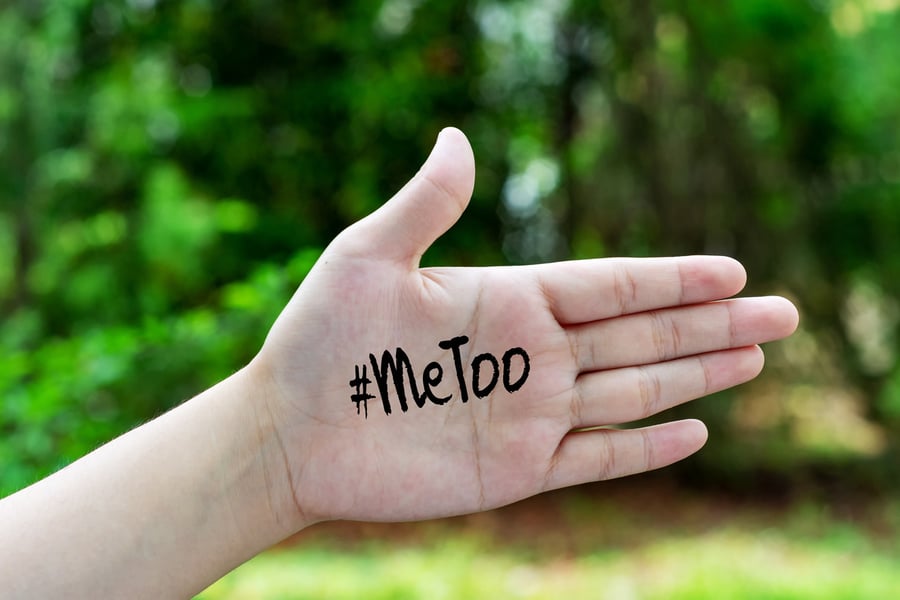Content Warning: This article covers sexual harassment incidents. If you or someone you know are affected by the following story, you are not alone. To speak to someone, you can call 0800 LIFELINE (0800 543 354) or send a text to HELP (4357).
Tami Neilson, Lydia Cole and others have called on the New Zealand music community to lead the change for a safer working environment for fellow artists.
The social media campaign comes in the aftermath of a difficult couple of weeks for Aotearoa’s music industry, after Brooke Fraser thanked Paul McKessar, who was named in the country’s #metooNZ investigation in 2021, during her Auckland concert last month.
“I wanna thank CRS Management… Campbell [Smith] and Paul [McKessar], who are here tonight, have been with me from the very early days,” Fraser told the Spark Arena crowd.
That led to an outcry online from many in the country’s music community, including from singer-songwriter Lydia Cole, who was revealed to be one of McKessar’s victims in the original investigation. McKessar was stood down at CRS Music following his inclusion in an exposé into harassment and abuse of power in the New Zealand music industry in 2021.
Last week, CRS Management’s Campbell Smith shared a statement explaining the situation from their end, stating that after McKessar was stood down from the company in 2021, an independent investigator conducted an investigation which included the participation of Cole and Possum Plows.
“Ms Warren followed up with a report in July 2021, which we published, with recommendations and proposed best practices that CRS has followed with absolute exactness,” Smith’s statement read.
Love Music?
Get your daily dose of everything happening in Australian/New Zealand music and globally.
“For the years that Paul has been away from CRS, he undertook regular and significant therapy. My hope was that he had the capacity – through this process – to evolve, change and learn.
“I am now quite satisfied that Paul’s behaviours have been thoroughly addressed, and that he is not at risk of forming intimate personal relationships or behaving inappropriately with artists or work colleagues. I’m also satisfied that he has taken full accountability, learned and evolved.”
After the statement was released, Cole wrote in an Instagram Story: “I finally heard back from Campbell (CRS) in the form of two emails today. He did not ask how I am or show even a basic awareness of any distress caused.” She added in a further Instagram Story that she had several questions following the CRS statement.
And today, Cole, Neilson, and more artists and industry figures have taken to social media to share a series of posts demanding that CRS Management “do better.”
The posts start with a recap of what led to this moment: “CRS then issued a statement written by Campbell – Paul’s best friend – saying that he had assessed Paul after 2 years of therapy and felt happy to give him his job back in 2023. But for Lydia and others, this statement only led to more questions…”
View this post on Instagram
Cole’s questions are then listed:
“How we can trust Campbell to assess Paul (his best friend) for safety when there is such a glaring conflict of interest here?”
“What was the nature of the assessment made of Paul’s safety? Is this documented?”
“Is there evidence that Paul actually stepped away from his roles?”
“On what day in 2023 did Paul resume his role?”
“Why were victims not informed of Paul’s return to work?”
According to the posts, a “lack of care” was exhibited from CRS.
“The statement from CRS does not centre survivors of Paul’s behaviour or express concern for their wellbeing, highlighting that there is still much more work to be done.”
View this post on Instagram
Neilson, Cole, and Wiri Donna‘s responses to last week’s statement are included, followed by a section titled “what do we want.”
“Abusers continue when they are protected by their community. Silence enables them to continue. We are asking you to stand with these survivors and do the work of being loud. Because it’s really hard to be abused and then have to be vocal about it for things to change.
“NZ music community – including leaders, artists, and all ‘behind the scenes’ – to lead the change required for a safer working environment.
“CRS to answer the many unanswered questions and show some concrete examples of how they might be safe to survivors going forward.
“Show CRS that this matters.”
You can view the full series of posts here. Rolling Stone AU/NZ has reached out to CRS Management for comment.
Resources are available to anyone struggling with similar issues in New Zealand music, including MusicHelps and Soundcheck Aotearoa. Beneath the Glass Ceiling also has a list of helpful resources here.



































